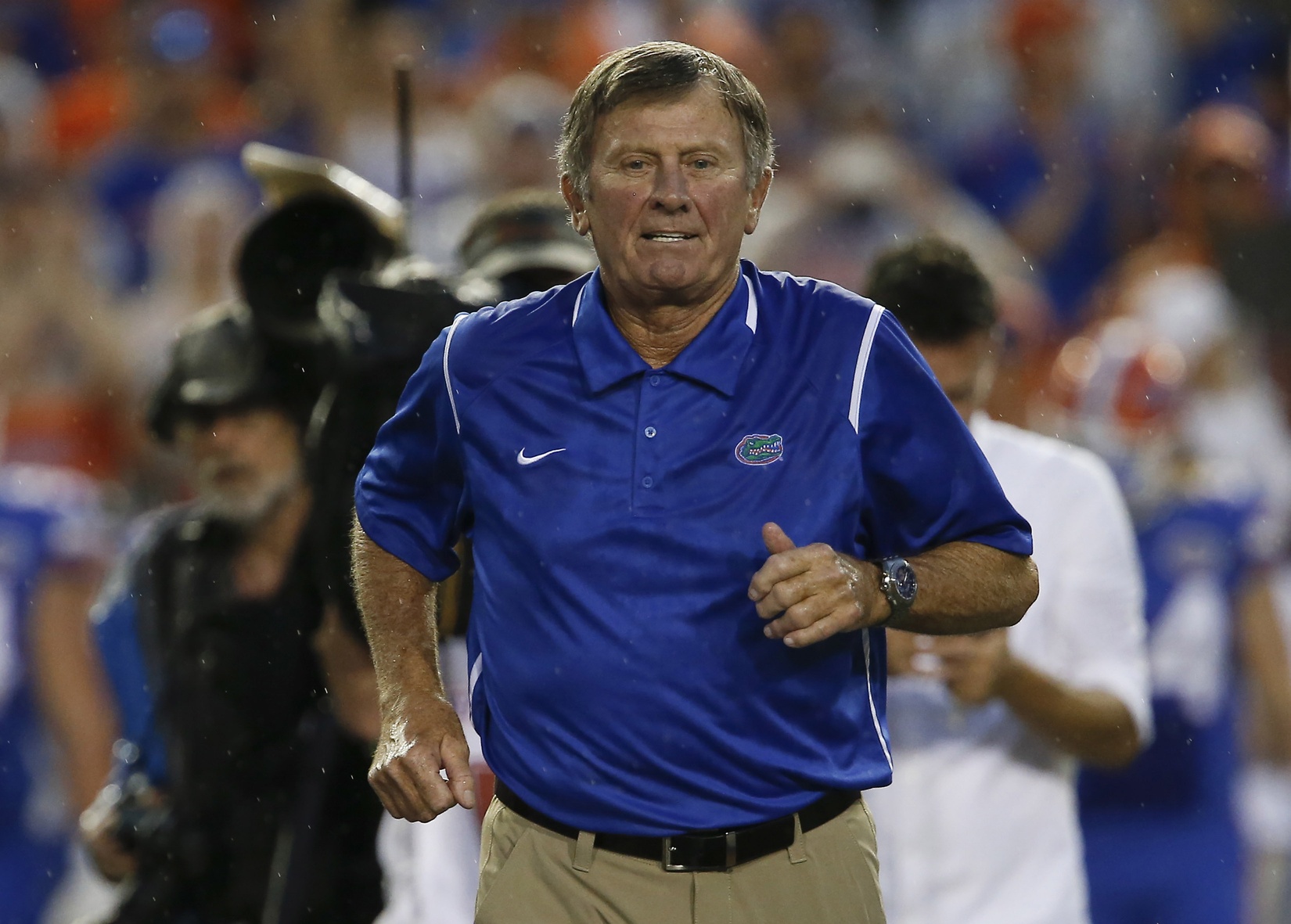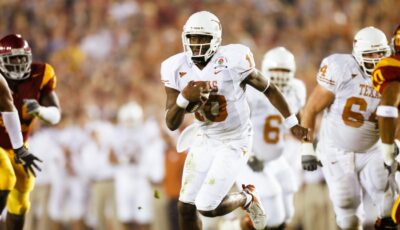
Book review: Head Ball Coach retraces glory days with Gators, Gamecocks
By Andrew Olson
Published:
GAINESVILLE, Fla. — When Steve Spurrier has something to say, everyone in the SEC listens.
Whether fan, foe or media member, you always have your ear ready for that witty gem he might drop without warning.
Spurrier’s zingers, like “You can’t spell Citrus Bowl without a U-T in it,” are still popular today because they were brief and to the point. They were memorable. And they were quotable.
RELATED: Steve Spurrier’s 50 best quotes
In many ways, Spurrier was ahead of his time, keeping his best lines under 140 characters years before Twitter’s existence.
To tell his story, however, Spurrier has shifted gears. With the help of longtime sports journalist Buddy Martin, “Head Ball Coach: My Life in Football” finds Spurrier taking a reflective tone to look back on how a Presbyterian minister’s son who spent his formative years in Johnson City, Tenn., became one of college football’s most iconic and influential figures.
As Spurrier told Paul Finebaum last month, if you don’t write your story someone else will. While Florida is a prominent part of that 296-page story, and his South Carolina tenure gets two chapters, Spurrier makes sure to include everything from youth sports to the USFL in “Head Ball Coach.” The short and sweet quip master in this format takes some getting used to, but the result is an insightful look into how Spurrier’s desire to bring more passing to college football left a lasting impression on the sport.
The focus of the book is Spurrier’s coaching career. After a rocky start of working for two fired head coaches, he eventually got on an upward path that started with joining the Duke Blue Devils in 1980. When he looked back, he recognized that he was fortunate to be in the right place at the right time, and worked in a jab at the Georgia Tech coach who elected not to retain him:
I had been at Dunwoody High School that day when Coach Red Wilson just happened to be there. I had just happened to call the plays for the first time ever against Duke. Coach Wilson liked what he saw. And he wound up letting me be the architect of the Duke offense.
I just happened to be at Duke the same day with the recruit who would become the all-time leading passer in college football by the end of his fourth year in 1983 – Ben Bennett!
You talk about the right place at the right time! It’s scary! Another divine appointment.
And if Jerri didn’t say, “Do you have a job?” I might have still been sitting around there waiting for Bill Curry to call me back.
While it’s Duke’s 21-17 win over Clemson in 1989 that Spurrier ranks as the “most impactful” of his career, and South Carolina’s upset over defending national champion Alabama in 2010 gets a special shout-out, the book has an orange and blue cover because of Spurrier’s remarkable 12-year run at Florida as the winningest coach in school history (122-27, six SEC championships, 1996 national championship).
It’s a celebrated run, but Spurrier admits he ended it too early, making the jump to the NFL after the 2001 season:
I was asked by a reporter several years ago at our SEC coaches meetings in Destin, Florida if I thought I’d ever catch Coach Bear Bryant for most victories in the SEC. Coach Bryant was 159-46-9 in SEC games while at Kentucky and Alabama. Somebody had calculated that I would need to average a little more than seven SEC wins a season for the next four seasons back then to catch him.
“Had I wanted to break that record, I would have stayed at Florida,” I said to a reporter. And I meant that. However, for other reasons I have to admit in retrospect that I left Florida four or five years too early. All the pieces were in place to keep winning more championships – conference and national.
When Spurrier returned to college football in 2005, it was at South Carolina, a place critics didn’t expect him to win. Though he got off to a slow start, he finished as USC’s winningest coach (86-49).
The 2010 season was a turning point for Spurrier at South Carolina, and especially special as he clinched the SEC East in his old stomping grounds:
It was only our second win over the Gators in the last twenty games, breaking a twelve-game drought in The Swamp, where South Carolina had never won. This was Urban Meyer’s last home game as the Gators coach after winning two national championships at Florida. I couldn’t help but make the comment: “Sometimes the Gamecocks get out alive!”
The book’s release comes at a time when Spurrier is back in The Swamp as a Gator (he even has an office inside the stadium). He joined the UF athletic department as an ambassador in late July, and has already been notably active in his new role. Spurrier has attended multiple Gators practices, watched film with coach Jim McElwain and was featured prominently in a recent promotional video.
At the season opener, Florida Field was renamed Steve Spurrier-Florida Field, which the coach called “the single biggest honor I will ever receive.” He was also the game’s honorary Mr. Two Bits, performing the signature cheer at midfield prior to kickoff. He even managed to squeeze in a book signing that afternoon at the campus bookstore.
For some Florida fans, there won’t be enough from 1990-2001 in “Head Ball Coach” to satisfy their hunger for memories of the Fun-N-Gun era. If Spurrier ever wanted to write another book, perhaps focusing on his time on The Swamp sidelines, he could call it “Head Gator.” It’s doubtful that anyone will ever do more for Florida football.
Andrew writes about sports to fund his love of live music and collection of concert posters. He strongly endorses the Hall of Fame campaigns of Fred Taylor and Andruw Jones.







